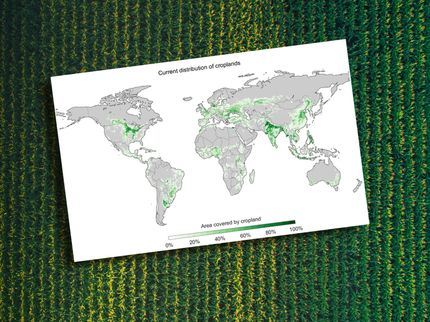Tiny fish could unlock big gains in tackling global malnutrition
Tiny fish could play a big part in tackling malnutrition and the food insecurity crisis across the globe, a new study reveals.
Advertisement
Tiny fish could play a big part in tackling malnutrition and the food insecurity crisis across the globe, a new study reveals.

Smoked pelagic fish in Accra, Ghana
Dr James Robinson
Small species such as herring, sardines and anchovies are the cheapest source of nutritious fish found in many low and middle-income countries, and are often caught in large volumes in the waters of nations where people are experiencing malnutrition, researchers have found.
These findings are vital given there are currently around 3 billion people living in Southern Asia and sub-Saharan Africa who cannot afford a healthy nutritious diet. Deficiencies in essential micronutrients are linked to conditions such as maternal mortality and stunted growth, and are becoming more prevalent around the world.
Malnutrition is rising in sub-Saharan Africa, and in 2020 10 million children suffered wasting and 55 million children were stunted through inadequate diets. However, this new study led by scientists from Lancaster University and published in Nature Food, reveals that in sub-Saharan Africa, just 20% of the small pelagic fish caught locally could provide all children under the age of five living near the sea or lakes with a daily portion of nutritious seafood.
Dr James Robinson, of Lancaster university and who led the study, said: “Our findings show that nutrients critical to tackling malnutrition are within the reach of vulnerable people living nearby coastal and freshwater ecosystems across the globe.
“These small locally-caught fish are packed with nutrients key for sustaining healthy diets, are already caught in sufficient numbers, and are affordable. Small pelagic fisheries must be fished sustainably, and catches must reach vulnerable local populations.”
The research is part of the ‘Illuminating Hidden Harvests’ project, where an international team of researchers and fisheries scientists collected data on catch volumes and economic and nutrient data for over two-thirds of global fisheries catch, including nearly 2,350 species. The findings identified the most affordable and nutritious fish in 39 low and middle-income countries, and will help inform public health and fisheries policies in places where data on fish nutrients are scarce.
These small species, known as pelagic fish because of the part of seas and lakes in which they are found, hit a sweet spot of being highly nutritious, caught abundantly and, crucially, are also the most affordable fish, especially in low-income countries. Small pelagic fish are rich in iron, zinc, calcium, omega-3 fatty acids, and selenium and are up to twice as affordable as other fish groups. Herrings, sardines and anchovies were found to be the cheapest nutritious fish in 28 of the 39 countries studied. Cold-water demersal species, such as cod and flounders were found to be the least affordable.
The affordability of different fish was measured through comparisons with the cost of the cheapest local staple foods, such as rice or root crops. This allowed the researchers to compare fish prices across countries with different income levels and food systems.
Co-author Dr Kendra Byrd of the University of Greenwich Natural Resources Institute said, “Fish is a key animal food in the Global South, providing a local and cheap source of micronutrients such as iron and zinc. Governments and other institutions have lacked sufficient data on which fish species would deliver the biggest benefits for public health, until now.
“Prioritising small pelagic fish for consumption by local vulnerable people, such as children, mothers or the elderly, can help to address common nutrient deficiencies such as calcium, iron and zinc, delivering huge public health benefits.”
However, the researchers highlight that there are threats to the supply of these small fish through overfishing as well as competing demand from international global demand and industries such as animal feeds and fish oils.
Dr Godfred Asiedu, of Ghana Fisheries Recovery Activity and who was another co-author on the research, said: “The need for locally accessible, cheap, and nutritious food sources has never been greater. Our study helps to shine a light on the ‘hidden’ environmental, social, economic and governance contributions of small-scale fisheries, focusing attention on the importance of policy making for sustainable and equitable management of small-scale fisheries.“
The findings are outlined in the paper ‘Small pelagic fish supply abundant and affordable micronutrients to low- and middle-income countries’.






























































